Politics
UN Orders Urgent Probe as Survivors Detail Grisly Atrocities in Fallen Sudanese City
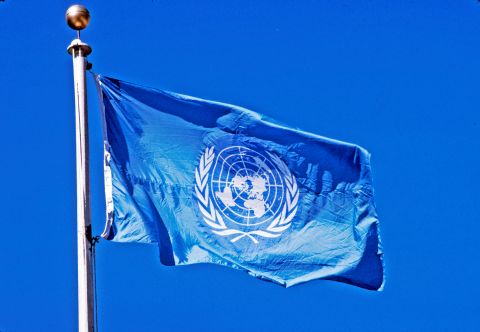
UN Orders Urgent Probe as Survivors Detail Grisly Atrocities in Fallen Sudanese City
In a development drawing global attention to yet another flashpoint in Africa’s worsening security landscape, the United Nations Human Rights Council on Friday ordered an urgent investigation into alleged war crimes committed during the Rapid Support Forces’ (RSF) capture of Al-Fashir, the last major Sudanese army stronghold in the Darfur region.
The resolution adopted amid mounting diplomatic pressure directs investigators to “identify, where possible” those responsible for the suspected atrocities, signalling a firm international push toward accountability as the humanitarian crisis in Sudan deepens into confirmed famine conditions.
The UN’s intervention comes nearly three weeks after the RSF seized Al-Fashir following an 18-month siege that aid agencies have described as one of the most brutal chapters of Sudan’s year-old civil war.
Since the fall of the city, nearly 90,000 residents have reportedly fled Al-Fashir and surrounding communities, according to the International Organization for Migration triggering yet another wave in a displacement crisis that has already fractured families and destabilised the region.
For those who escaped, the horrors of the RSF assault remain vivid.
At the Al-Affad displacement camp, survivor Fatheya Mohamed Hussein recounted the desperation that swallowed the city as supplies vanished.
“There was no longer Ombaz available, cattle hide was not available, we were thirsty and there was no water,” she said.
Describing the aftermath of Al-Fashir’s collapse, she added: “There were bodies in the streets… decomposed bodies… that dogs were dragging in the streets.”
Another survivor, Adam, detailed what he called systematic humiliation and violence by RSF fighters.
He recalled gunmen brandishing rifles and asserting they had “the right to kill us,” performing invasive searches and inflicting beatings.
“The searching, hitting, humiliation, and torture. Some died, others lived, and others were lost,” he told the Associated Press.
The conflict, which erupted in 2023 between the Sudanese Armed Forces and the RSF, has expanded into one of the world’s gravest humanitarian disasters—a scenario that African analysts say mirrors patterns seen in protracted conflicts from the Sahel to the Horn of Africa.
Current data from UN agencies paints a dire picture:
Famine has been officially confirmed in Al-Fashir and Kadugli, both cut off from consistent humanitarian access.
The World Food Programme warns that more than 21 million people—nearly half of Sudan’s population—now face acute food insecurity.
At least 40,000 people have been killed, while a staggering 12 million have been displaced. Aid groups fear the real figures are far higher.
UN Spokesperson Stephane Dujarric stressed that access to humanitarian corridors remains the make-or-break factor between life and death for thousands still trapped.
In areas where aid delivery has been continuous, he noted, “famine-like conditions have been reversed,” underscoring the urgent need for safe passage into conflict zones.
The newly mandated investigation aims to puncture the culture of impunity surrounding the conflict.
Both the RSF and the Sudanese Armed Forces alongside several foreign powers alleged to be providing military support now face intensified scrutiny over their roles in the atrocities unfolding across Sudan.
Analysis
Abroad and the Mirage of Greener Pastures, by Alabidun Shuaib AbdulRahman
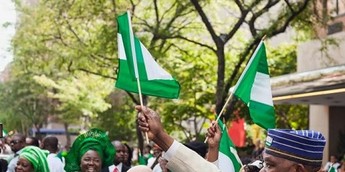
Abroad and the Mirage of Greener Pastures, by Alabidun Shuaib AbdulRahman
For many Nigerians, the idea of leaving the country in search of greener pastures has evolved from a personal aspiration into a collective obsession. It is discussed in living rooms, amplified on social media and often framed as the ultimate proof of success. Yet, beneath this powerful narrative lies a far more complex and troubling reality. The migration journey of many Nigerians abroad has increasingly become a cycle defined by delusion, deportation and depression, exposing not only the personal costs of mass emigration but also the structural failures that continue to make Nigeria unattractive to its own citizens.
The delusion begins with the belief that crossing Nigeria’s borders is a guaranteed escape from hardship. Economic instability, high youth unemployment, currency depreciation, insecurity and declining public services have made life at home feel suffocating for many. According to national labour data in recent years, millions of young Nigerians remain unemployed or underemployed, surviving on informal work with little security. In such an environment, the stories of Nigerians “making it” abroad often exaggerated and selectively told. Social media reinforces this illusion, projecting curated images of success while concealing years of struggle, legal uncertainty and social isolation. Migration, therefore, becomes less a carefully planned economic decision and more a desperate gamble.
What is often ignored is the reality that destination countries are no longer welcoming in the way they once were. Immigration systems across Europe, North America and parts of the Middle East have grown increasingly restrictive over the last decade. Entry visas are harder to obtain, asylum thresholds are higher, and undocumented migrants face swift enforcement. Many Nigerians, unable to meet legal migration requirements, resort to irregular pathways that expose them to exploitation, detention and eventual removal. The assumption that “once you enter, you will settle” has become one of the most dangerous myths fuelling migration today.
Deportation figures over the last five years reveal the scale of this problem. Between 2019 and 2024, official records from the United States Immigration and Customs Enforcement show that 902 Nigerians were deported from the U.S. alone. This made Nigeria the African country with the highest number of deportations from the United States within that period. The numbers fluctuated yearly with a peak in 2019 and renewed increases after the COVID-19 slowdown but the trend remained consistent: Nigerians continued to rank among the most deported African nationals. As of late 2024, over 3,600 Nigerians were still listed on active deportation dockets in the U.S., meaning thousands more face the possibility of forced return.
These figures only tell part of the story. Deportations from the United States represent a fraction of global removals. Nigerians have also been deported from the United Kingdom, Canada, Germany, Turkey and several Gulf countries, particularly the United Arab Emirates. While comprehensive global figures are difficult to aggregate due to varying reporting standards, Nigerian government confirmations and international media reports indicate that hundreds are returned annually from Europe and the Middle East for visa violations, overstaying, or irregular entry. In some cases, deportations occur quietly through “voluntary returns” under pressure, masking the true scale of the problem.
Deportation is not just a bureaucratic process; it is a traumatic human experience. Many deportees return with nothing but the clothes they wore during detention. Savings are wiped out, families are embarrassed, and years of effort collapse overnight. For those who borrowed money or sold property to finance migration, the consequences can be catastrophic. The psychological impact is severe. Depression, anxiety and a sense of personal failure are common among returnees, yet Nigeria’s mental health infrastructure remains ill-equipped to support them. In a society where success is often measured by foreign residence, deportation carries a stigma that deepens isolation and despair.
This emotional toll is worsened by the reality that many deportees return to the same economic conditions that pushed them out in the first place, sometimes worse. Without reintegration support or job opportunities, some struggle to rebuild their lives. Others attempt to migrate again, repeating the cycle. What emerges is not a story of adventure or progress, but one of circular displacement, with human lives caught between hope and rejection.
The uncomfortable truth is that migration itself is not the problem. People have always moved in search of better opportunities. The problem arises when migration becomes a mass escape route driven by structural neglect at home rather than opportunity abroad. Countries whose citizens show little desire to emigrate offer valuable lessons. Japan, for example, consistently records one of the lowest emigration rates in the world, with just over one percent of its population living abroad. This is not because Japanese citizens lack the means to travel, but because living standards, job security, healthcare, infrastructure and social cohesion make staying attractive. The same applies to countries like Finland and Denmark, where strong welfare systems, transparent governance and inclusive economic policies reduce the push factors that drive mass migration.
The United Arab Emirates presents another instructive case. Despite being one of the world’s largest migrant-receiving countries, over 99 percent of Emirati citizens choose to live at home. This reflects deliberate state investment in citizen welfare, education, housing and employment. Development in these countries did not happen by accident; it was the product of long-term planning, institutional discipline and a shared national vision that prioritised citizen wellbeing.
Nigeria’s situation stands in sharp contrast. The country has the human capital, natural resources and entrepreneurial energy to offer its citizens fulfilling lives at home, yet governance failures continue to erode trust in the system. Infrastructure deficits increase the cost of doing business, insecurity discourages investment, and inconsistent policies undermine long-term planning. As long as these conditions persist, foreign lands will continue to appear attractive even when evidence shows that the odds of success are increasingly slim.
What makes the situation more tragic is that the Nigerian diaspora itself is proof of what Nigerians can achieve under functional systems. Nigerians abroad excel in medicine, technology, academia, sports and business, contributing billions of dollars annually in remittances. These successes, however, highlight a painful paradox: Nigerians thrive elsewhere not because they are better suited to foreign environments, but because those environments reward talent, hard work and innovation more consistently.
The fixation on leaving Nigeria has also created a dangerous moral hazard. When migration becomes the default solution, pressure on leaders to fix systemic problems weakens. Citizens disengage, hoping to exit rather than reform. This mindset erodes national solidarity and undermines the collective responsibility required for development. No country has ever developed sustainably through mass emigration of its most productive population.
Reversing this trend requires more than slogans about patriotism. It demands credible action. Economic policies must translate into real jobs, not just growth figures. Education must align with labour market needs, equipping young people with skills relevant to a modern economy. Security must be restored so that lives and investments are protected. Institutions must function predictably so citizens can plan their futures with confidence. Without these, calls for Nigerians to “believe in the country” will ring hollow.
Equally important is honest public conversation about migration. Young Nigerians deserve accurate information about the risks, legal realities and psychological costs of irregular migration. Romanticising life abroad while ignoring deportation statistics and mental health consequences does a disservice to an already vulnerable population. Migration should be a choice made from strength, not desperation.
Analysis
Are Forest Guards to the Rescue? By Alabidun Shuaib AbdulRahman
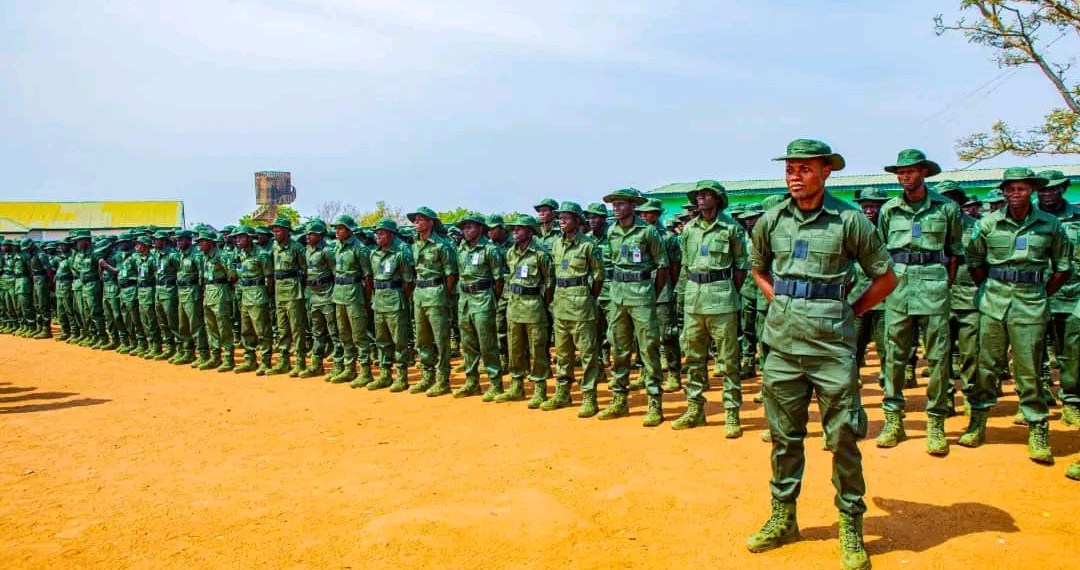
Are Forest Guards to the Rescue? By Alabidun Shuaib AbdulRahman
Nigeria’s insecurity story has become the longest‑running drama of our national life, and, at times, its most tragic one. Every week seems to bring another report of village raids, kidnappings, forest‑based ambushes or displaced families seeking refuge from bandits and terrorists. City centres barely register the scale of fear that grips the rural hinterland, where the reach of the state has, for years, thinned to near invisibility. In this context, one of the most talked‑about security interventions of 2025 has been the launch of Forest Guards, a new security force aimed at reclaiming Nigeria’s forest reserves from criminal exploitation. But the fundamental question remains: Is this initiative truly to the rescue?
On May 15, 2025, President Bola Ahmed Tinubu approved the establishment of a national Forest Guards system as part of broad efforts to curb escalating insecurity across Nigeria. The announcement, made at an expanded Federal Executive Council meeting, envisaged recruiting as many as 130,000 forest guards nationwide by directing each state and the Federal Capital Territory to hire between 2,000 and 5,000 operatives depending on their financial capacity. The recruitment and training process was to be jointly supervised by the Office of the National Security Adviser (ONSA) and the Ministry of Environment, with other arms of government providing strategic partnerships.
Nigeria has 1,129 recognised forest reserves and protected areas spread across 36 states and the FCT, making it one of the countries with extensive forest cover on the continent. Many of these forests have become havens for bandits, terrorist groups and kidnappers who exploit the terrain’s complexity to evade the reach of conventional security forces. The initiative’s core premise is to deny these criminals the luxury of sanctuary and operational space by placing trained personnel directly within the forests and surrounding communities.
The launch was greeted with a blend of cautious optimism and scepticism. On one hand, the idea of forest‑specific security adherents — indigenous recruits familiar with local terrain — promised something more nuanced than the traditional military incursions that have repeatedly failed to sustain security gains. On the other hand, concerns about resourcing, coordination, recruitment delays and the overall viability of such a large force in a tilted fiscal climate began to surface almost immediately after the announcement.
Seven months after the launch, the first cohort of Forest Guards has begun to take shape. On December 27, 2025, over 7,000 newly trained Forest Guards graduated from an intensive three‑month training programme under the Presidential Forest Guards Initiative. The graduates emerged from exercises held simultaneously across seven frontline states — Borno, Sokoto, Yobe, Adamawa, Niger, Kwara and Kebbi — marking what many officials described as the operational takeoff of the project. These states were selected partly because they include forest corridors most closely linked to violent criminal activity.
At the graduation ceremonies, National Security Adviser Mallam Nuhu Ribadu outlined the initiative’s purpose: to “strengthen Nigeria’s internal security architecture by denying terrorists, bandits, kidnappers and other criminal groups sanctuary within forested and hard‑to‑reach terrains,” and to serve as “first responders, gather intelligence and support security agencies operating in forests and difficult terrain.” According to Ribadu, deployment would begin immediately, with salaries and allowances to commence without delay.
The guards were trained not simply in physical endurance and patrol discipline, but in human rights, international humanitarian law, ethics and civilian protection. This curriculum including arms handling and regulated use‑of‑force procedures was deliberately structured to ensure that the guards would operate professionally and within established legal frameworks.
Yet seven months after the presidential approval, not all states have fully embraced the initiative. As at last count, the recruitment efforts vary widely: while states like Borno, Adamawa, Kwara, Plateau, Niger, Edo, Anambra and Enugu have begun processes, others such as Kaduna, Ondo, Benue, Kano, Jigawa, Akwa Ibom and Gombe lag behind in recruitment and mobilisation. It was argued that without universal adoption and consistent funding, the force risks patchy coverage that does little to alter the country’s broader insecurity picture.
Still, the fact that thousands of guards are now equipped, trained and being dispatched to forest zones represents a symbolic break from past half‑measures. It reflects a growing consensus among policymakers and security strategists that conventional military responses, often reactive and episodic, must be complemented by specialised, sustained presence in the spaces where criminal networks thrive.
Nigeria’s approach echoes similar strategies elsewhere in the world, albeit adapted to local contexts. In southern Africa, anti‑poaching ranger units have shown that continuous, well‑trained presence in protected areas can significantly reduce illegal activity; documented declines in poaching and encroachment followed sustained ranger deployments in conservation zones. While Nigeria’s Forest Guards are focused on insecurity rather than wildlife protection, the operational logic is similar: constant presence alters the behavioural calculus of those who operate outside the law.
In India’s forested insurgency zones, forest guards working alongside conventional security forces have helped limit mobility and operational space for insurgent groups. The collaborative model, combining local knowledge, community engagement, and formal security mandates has been credited with improving early warning and preventive capacity in areas where terrain favours non‑state actors.
China, despite its very different political environment, has deployed millions of forest rangers nationwide to enforce laws and protect resources, underlying the broader principle that unmonitored terrain invites exploitation.
These international parallels suggest that a specialised force rooted in terrain familiarity and community engagement can yield positive results. But it also posits the prerequisites for such success: adequate resourcing, clear legal authority, accountability, consistent funding, and structures that prevent politicisation or fragmentation. Nigeria’s Forest Guards may be a promising model, but without these underpinning elements, they risk becoming another iteration of well‑meaning policy that struggles under real‑world pressures.
For rural communities long left to fend for themselves, the presence of Forest Guards is welcome. Anyone who has seen a village terrorised for weeks can attest to the psychological value of a sustained security presence. But analysts caution that security alone cannot provide a durable solution. Poverty, unemployment, weak local governance and distrust of the state remain powerful drivers of criminal recruitment and persistence. Unless Forest Guards are integrated into broader development strategies including livelihood support and meaningful local governance their impact may be limited to temporary disruptions rather than lasting peace.
Another dimension of the Forest Guards debate revolves around accountability and professionalism. Nigeria’s history with auxiliary forces and special initiatives has been mixed, with some units overstepping mandates or becoming politicised over time. For Forest Guards to be credible, they must operate transparently, with accountability mechanisms that reassure citizens and protect human rights. This is especially important in forest communities where distrust of security agents sometimes runs deep.
Effectiveness must also be measured, not assumed. Public discourse often gravitates toward dramatic figures and proclamations, but the real test will be quantifiable outcomes: reductions in forest‑based kidnappings, dismantling of criminal encampments, improved safety on rural routes, and greater confidence among farmers and traders in returning to their lands. Nigeria’s security sector has sometimes been weak on data‑driven evaluations, but if Forest Guards are to transcend rhetoric, clear metrics and regular reporting will be indispensable.
Sustainability remains the overbearing question. Maintaining a specialised force of potentially 130,000 personnel that is well trained, paid, monitored, and accountable requires serious budgetary commitment. Nigeria’s economy is under strain, and security spending already commands a significant share of public finances. Ensuring that Forest Guards do not become victims of fiscal neglect will require sustained political will that goes beyond headline launches.
Yet, even with these caveats, the emotion in many affected communities is unmistakable: cautious hope. For farmers whose fields have been overrun, for traders who abandoned routes for fear of kidnappers, and for families rebuilding after raids, the idea that state presence could transform once‑feared forests into safer spaces matters deeply. It may not be the single panacea for all forms of insecurity, but it is an acknowledgment that Nigeria’s security challenges demand innovative and context‑specific solutions.
Ultimately, whether Forest Guards are truly “to the rescue” will depend on actions taken in the months and years ahead, not only on the ground but in corridors of policy, budgeting and public accountability. The forests have waited long enough for effective governance; now, the state’s ability to sustain this initiative may be one of the defining tests of its commitment to protecting every Nigerian, not just those in urban centres.
Nigeria’s insecurity did not emerge overnight, and it will not vanish overnight. Forest Guards represent an important step toward recognising that the battle for peace includes the spaces that have long been ignored. If properly resourced, professionally guided, and integrated with broader security and socio‑economic frameworks, they may yet prove to be not just a policy experiment, but a genuine rescue for communities long overshadowed by fear.
Analysis
Buhari, Power and the Burden of Integrity, by Alabidun Shuaib AbdulRahman
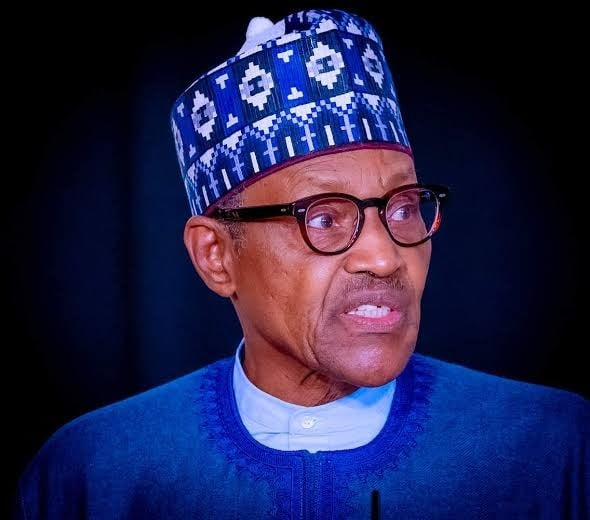
Buhari, Power and the Burden of Integrity, by Alabidun Shuaib AbdulRahman
Buhari’s life and leadership have always been defined by paradox. A man who began as a disciplined soldier, steeped in the rigors of military order, he later assumed the mantle of democratic president in a nation that demanded compromise, negotiation, and a delicate balance of interests. The launch of Muhammadu Buhari: From Soldier to Statesman, a biography by Dr. Charles Omole, provides a rare window into the inner workings of his leadership, tracing the contours of political power, family controversies, moral conviction, and the costs of integrity in office. What emerges is not a hagiography nor a critique, but a portrait of a man and a presidency struggling to reconcile principle with consequence, personal discipline with institutional responsibility.
Buhari’s political trajectory is remarkable for both its longevity and its historic impact. In 2015, he defeated the incumbent, President Goodluck Jonathan, winning 15.4 million votes to Jonathan’s 12.9 million. This was the first time an opposition candidate defeated a sitting president in Nigeria’s democratic history. He was re-elected in 2019 with 15.1 million votes, defeating Atiku Abubakar. These numbers reflect the scale of public confidence he inspired, a confidence rooted in a reputation for integrity and moral rectitude that transcended party lines. Yet the biography reveals that such trust came with enormous burdens, for voters expected not just policies, but a moral compass that could steer Nigeria through turbulent waters.
The book recounts Buhari’s tenure as military ruler from 1983 to 1985, underscoring the formative influence of that period on his understanding of leadership. As Head of State, he launched the “War Against Indiscipline” (WAI), a campaign to instill order in public life. Clean streets, punctuality, respect for authority were not cosmetic policies but reflections of his belief that moral and civic discipline were prerequisites for national progress. Yet, this strictness came at a cost: political opponents were detained without trial, the press faced censorship, and economic policies often exacerbated hardship. That era established a pattern that would recur in civilian rule: moral conviction in crisis with the human and institutional consequences of policy.
Fast forward to the Buhari presidency, and the book illustrates the complex interplay between his principles and governance. One illustrative episode is the controversial 2022 naira redesign. Ostensibly an economic measure to reduce inflation, curb cash hoarding, and encourage digital transactions, the policy had deep political and social ramifications. According to the biography, it was partially conceived to disrupt vote-buying ahead of the 2023 elections. While intended to advance the nation’s integrity, it triggered acute cash shortages, disrupted small businesses, and left rural communities struggling to access basic necessities. Millions of Nigerians were affected in an economy already reeling from two recessions: one in 2016, when GDP contracted by 1.6 percent following an oil price collapse, and another in 2020 due to the COVID-19 pandemic. Public debt ballooned from ₦12 trillion in 2015 to over ₦77 trillion by 2023, while inflation and unemployment rates soared, revealing the burden between moral intent and social impact.
Buhari’s handling of party politics also illuminates the burden of integrity. The biography recounts an incident during the All Progressives Congress (APC) 2022 primaries, when aides allegedly sought to influence outcomes by instructing security chiefs to favor a preferred candidate. Those instructions were not acted upon, and Buhari, upon learning of the attempt, refused to intervene, insisting he would not impose his choice. This decision, while morally consistent with democratic ideals, allowed internal factionalism to flourish and exposed the limitations of leadership built on principle rather than coercive control. It demonstrates a recurring theme in Buhari’s rule: the discipline of a soldier tested in the unpredictable theatre of democratic politics.
Family, too, emerges as a domain where power and integrity intersected with the controversy. The biography includes revelations from his wife, Aisha Buhari, describing a period during Buhari’s prolonged medical leave in 2017 in which rumours circulated suggesting she intended harm against him. However, the president’s response of locking his room and avoiding meals she prepared speaks to the psychological weight of leadership, where suspicion and trust coexist uneasily. Their daughter, Fatima Buhari, recounts discovering official documents bearing forged signatures of her father, raising questions about authenticity and control in the corridors of power. These episodes are not sensationalism for its own sake; they illustrate how integrity, both personal and institutional, can be compromised or distorted, even within the president’s immediate household.
Mamman Daura, Buhari’s influential nephew, occupies a particularly revealing space in the book. His proximity to the president has often been cited in discussions of the so-called “Villa cabal.” Omole presents this relationship not as a conspiratorial plot but as an instance of moral and personal trust shaping governance. Buhari, who valued loyalty and shared history, often delegated authority to individuals he believed would uphold his principles. Yet, as the biography notes, reliance on personal loyalty rather than institutional mechanisms introduced vulnerabilities, making the administration susceptible to both internal intrigue and public criticism.
On national security, the book offers both praise and critique. Under Buhari, Boko Haram, which had seized numerous local government areas in the Northeast, was territorially weakened. Multinational cooperation improved, and thousands of insurgents were neutralized. Yet the book notes that other security challenges intensified. Banditry in the Northwest claimed thousands of lives, and farmer-herder conflicts escalated in multiple regions. Buhari’s military instinct led him to approach these issues as security problems rather than socio-economic ones, projecting the limits of a morality-focused approach in a structurally complex nation.
Economic policy further illustrates the paradox of integrity under duress. Infrastructure projects, including rail lines, roads, and power facilities, were completed or accelerated. Social intervention programs were expanded. Yet inflation, unemployment, and poverty rates remained stubbornly high. For example, inflation reached double-digit levels in 2022, and the National Bureau of Statistics reported unemployment exceeding 33 percent in 2021. The book posits that Buhari’s commitment to ethical governance eschewing patronage and corruption sometimes conflicted with pragmatic economic interventions that could have alleviated immediate suffering, highlighting the burdens of integrity in office.
The biography also situates Buhari’s moral philosophy within the broader framework of public expectation. He was widely regarded as a man who rejected ostentation, faithfully declared his assets, and maintained a personal life detached from the trappings of power. Yet the book underscores a central question: Can personal virtue compensate for systemic dysfunction? Policies executed with moral clarity did not always produce equitable outcomes, reminding readers that integrity, however steadfast, does not insulate a society from consequence.
Public reception of the biography has mirrored the divided legacy it chronicles. Supporters emphasize Buhari’s unwavering commitment to principle, his efforts to curb corruption, and his steadfast leadership during challenging times. Critics focus on policy missteps, humanitarian fallout, and perceived aloofness. The biography itself has ignited debate over historical interpretation and the role of personal narrative in shaping public memory. Former Kaduna Governor Nasir el-Rufai described the book as potentially transforming Buhari’s legacy into a tool for narrow political interests, while analysts caution that literary accounts cannot fully capture the lived experiences of citizens affected by policy.
The book’s thematic core—power coupled with integrity—offers lessons not just about Buhari, but about governance itself. Leadership demands balancing moral conviction with the pragmatic complexities of a diverse nation. Buhari’s experience illustrates that personal integrity, while admirable, cannot operate in a vacuum. The mechanisms of state, the pressures of politics, and the unpredictability of human behavior inevitably shape outcomes in ways that moral intent alone cannot control. The biography does not shy away from these contradictions; it embraces them as part of the story.
Ultimately, From Soldier to Statesman positions Buhari as a figure whose public life cannot be divorced from private conviction. His military discipline, moral clarity, and personal austerity defined his approach to governance, even when structural realities and human behavior complicated the translation of those principles into policy. The narrative challenges readers to consider the burdens of integrity: the personal cost, the public expectation, and the unintended consequences that arise when principle meets the messy reality of nationhood. Nigeria, as much as Buhari himself, is the subject of this reflection.
In framing his legacy, the book refrains from offering final judgments. Instead, it presents evidence, testimony, and analysis, leaving readers to grapple with the complex interplay of power, family, and moral responsibility. It reminds us that leadership is seldom a matter of unalloyed success or failure. It is a negotiation between ideals and realities, between what a leader believes should happen and what the nation can sustain. Buhari’s story, as told in this biography, is emblematic of that tension, offering a prism through which to examine Nigeria’s own ongoing struggle with governance, morality, and the rule of law.
By revisiting Buhari through the lens of personal integrity and public consequence, the biography forces a recognition that moral leadership is not costless. Policies rooted in principle may impose hardship, familial loyalty may complicate governance, and the very discipline that preserves character may restrict flexibility. The book situates Buhari as a man aware of these burdens, striving to navigate them even when the outcomes were imperfect, sometimes harsh, but always reflective of a personal code of ethics that remained central to his identity.
In the final assessment, Muhammadu Buhari: From Soldier to Statesman is more than a recounting of elections, decrees, and family dynamics. It is an exploration of the paradoxes of leadership in Nigeria. Buhari’s life and presidency illuminate the dilemmas inherent in governing a nation of over 220 million people, the costs of maintaining integrity in office, and the consequences of holding principle above expediency. For students of politics, historians, and citizens alike, the book offers both a cautionary tale and a meditation on what it means to carry the weight of power with conscience as a guide. Buhari’s story, and Nigeria’s, are inseparable: a testament to the enduring tension between moral leadership and political reality, and a reflection on the burdens that accompany integrity at the highest level of governance.
Alabidun is a media practitioner and can be reached via alabidungoldenson@gmail.com
-

 News5 days ago
News5 days agoHow US Captured Venezuela’s President Maduro in Daring Overnight Raid
-

 Analysis4 days ago
Analysis4 days agoAbroad and the Mirage of Greener Pastures, by Alabidun Shuaib AbdulRahman
-

 News5 days ago
News5 days agoUS Denies War With Venezuela as Tensions Rise After Maduro’s Capture
-
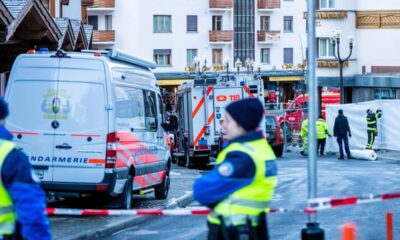
 News5 days ago
News5 days ago40 Dead, 119 Injured in Swiss Ski Resort Bar Fire
-

 Analysis4 days ago
Analysis4 days agoUnderstanding Nigeria’s Tax Reforms from the Diaspora Lens, by Boniface Ihiasota
-

 Business4 days ago
Business4 days agoFG Targets One Exportable Product per LGA as Nigeria Deepens AfCFTA Push in 2026










